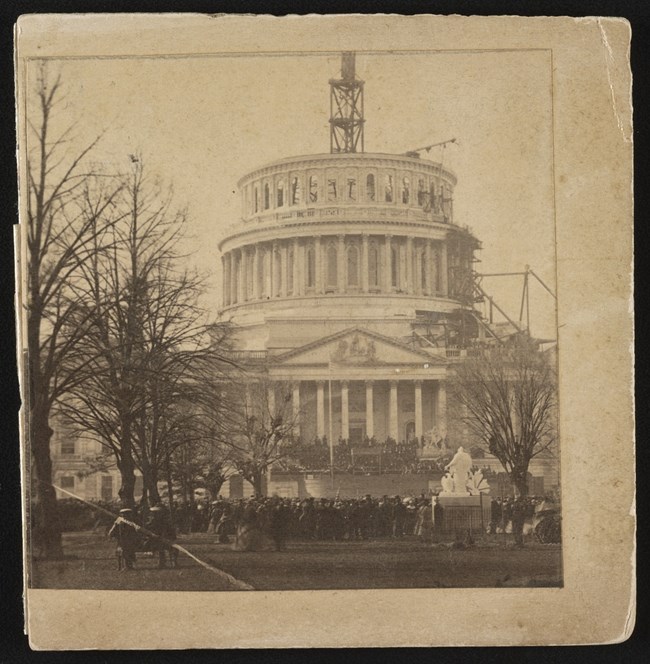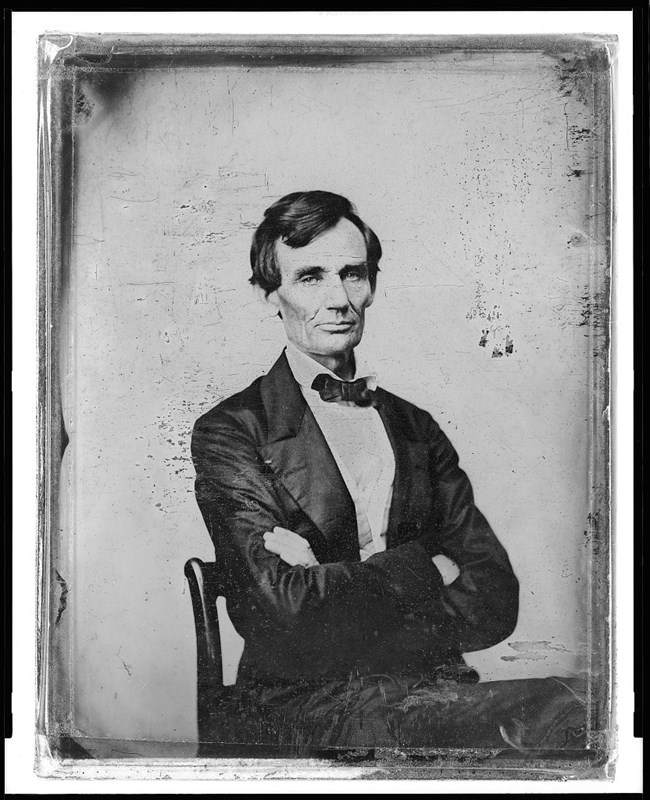Last updated: August 31, 2021
Article
Lincoln's First Inauguration

Library of Congress
Between Abraham Lincoln’s election as president in November 1860 and his departure from Springfield, Illinois, on February 11, 1861, seven southern states seceded, and they would eventually help form a renegade Confederate government. Ultimately these states would be followed by four others, which joined the Confederacy in the opening months of the sixteenth president’s time in office. Lincoln prepared to take the oath of office at his first inauguration on March 4, 1861, amid these tensest of circumstances. America was being ripped apart in a way that had never occurred before. The very perpetuation of the United States and our democratic ideals as a Republic were at stake.
In Lincoln’s time the inaugural parade was held before taking the oath of office and inaugural address. Lincoln rode by carriage with President Buchanan down Pennsylvania Avenue from the White House towards Capitol Hill. At times the soldiers enveloping the carriage were so thick that it was difficult for spectators to see president-elect Lincoln. A huge crane loomed above the U.S. Capitol building as the carriage approached.

Library of Congress
The U.S. Capitol dome, still under construction, symbolized a nation interrupted. President Lincoln in his first inaugural address chose to take a wide view of American history and to share the challenge he faced with his fellow citizens. Lincoln confided to the nation, “We are not enemies, but friends. Though passion may have strained, it must not break our bonds of affection. The mystic chords of memory, stretching from every battlefield, and patriot grave, to every living heart and hearthstone, all over this broad land, will yet swell the chorus of the Union, when again touched, as surely they will be, by the better angels of our nature.”
Within little more than a month of Lincoln’s swearing in, the opening shots of the Civil War were fired at Fort Sumter in South Carolina. Though it seemed that Americans were more divided than ever, Abraham Lincoln’s presidency would be guided by his own words in his first inaugural speech as he aspired for reconciliation between all citizens. Lincoln’s presidency would forever change our nation and the meaning of U.S. citizenship.
